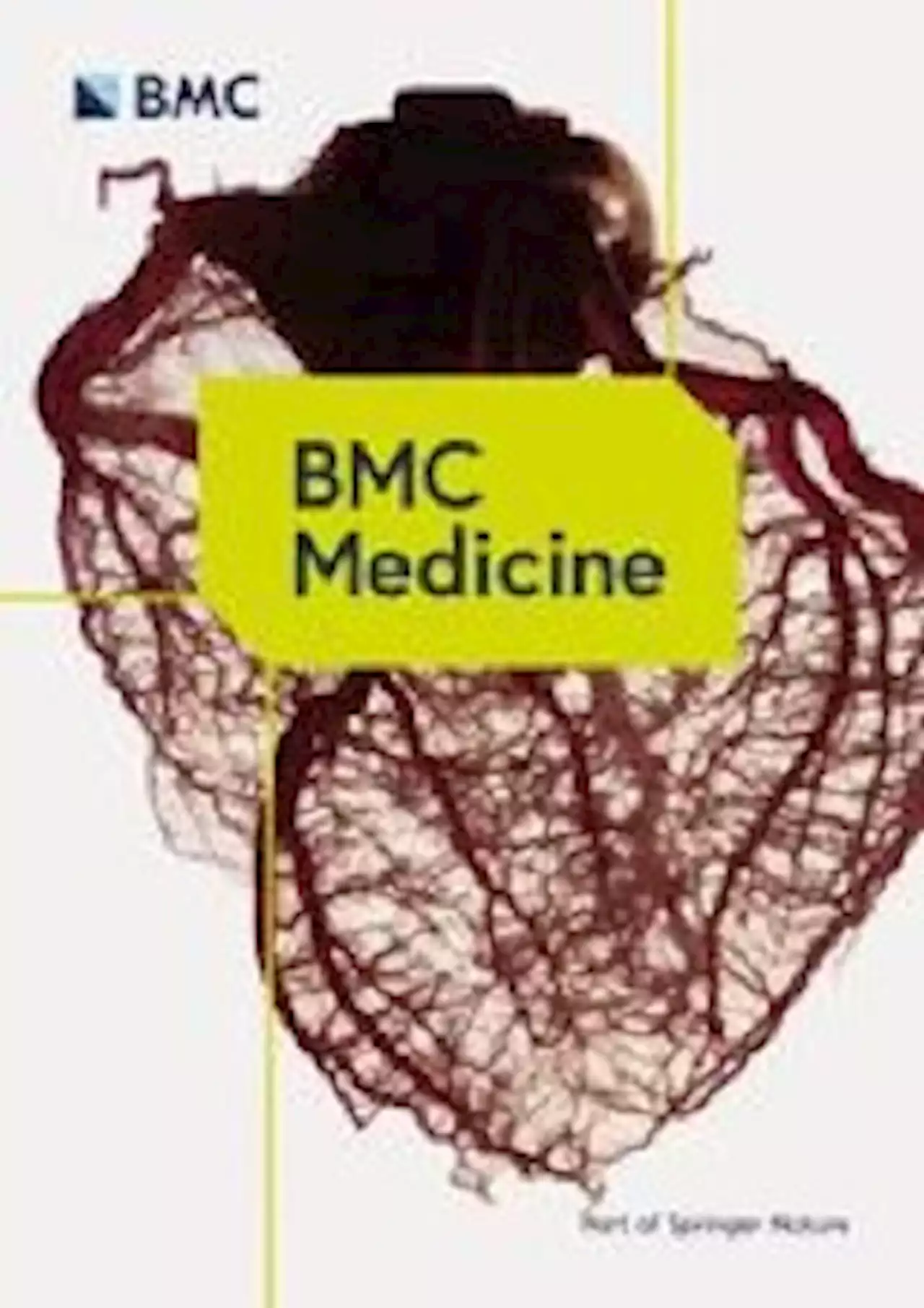**New Webinar** 17 August - Landscape and Dynamics of the Tumor Immune Microenvironment of Liver Cancer and Colorectal Cancer Liver Metastasis Discover more here: Webinars MarketingScience SciComms ShareScience
Liver cancer has the third most lethality in the world, and hepatocellular carcinoma accounts for approximately 90% of primary liver cancer.
Cancer immunotherapy has achieved remarkable results in clinical trials, while the therapeutic effects are uneven and the response rates in liver cancer and liver metastasized CRC are low. Thus, it is particularly important to explore different cell types in liver cancer and liver metastasized CRC, and decipher immune-regulation mechanisms in the TME of these cancer types.
They also illustrated the interaction relationship of different cellular components in liver cancer. For different cancer types, they compared the TME of primary liver cancer, primary CRC, and CRC liver metastasis. Qiming's research includes deciphering critical immune cell populations in the tumor microenvironment of liver cancer and liver metastasized colorectal cancer patients. Specifically, current immunotherapy regimens do not show significant efficacy in these patients, indicating the importance of understanding the regulation process of tumor-immune regulation and finding more effective therapeutic candidates.
Canada Latest News, Canada Headlines
Similar News:You can also read news stories similar to this one that we have collected from other news sources.
 Liver transplant patients with prior drinking problems can do well after transplantation, new study findsA new USC study shows that liver transplant patients with established alcohol abuse issues prior to transplantation can do as well as, or better than, others who receive new livers—a finding that challenges longstanding selection criteria.
Liver transplant patients with prior drinking problems can do well after transplantation, new study findsA new USC study shows that liver transplant patients with established alcohol abuse issues prior to transplantation can do as well as, or better than, others who receive new livers—a finding that challenges longstanding selection criteria.
Read more »
 Association of meat, vegetarian, pescatarian and fish-poultry diets with risk of 19 cancer sites and all cancer: findings from the UK Biobank prospective cohort study and meta-analysis - BMC MedicineBackground The associations of cancer with types of diets, including vegetarian, fish, and poultry-containing diets, remain unclear. The aim of this study was, therefore, to investigate the association of type of diet with all cancers and 19 site-specific incident cancers in a prospective cohort study and then in a meta-analysis of published prospective cohort studies. Methods A total of 409,110 participants from the UK Biobank study, recruited between 2006 and 2010, were included. The outcomes were incidence of all cancers combined and 19 cancer sites. Associations between the types of diets and cancer were investigated using Cox proportional hazards models. Previously published prospective cohort studies were identified from four databases, and a meta-analysis was conducted using random-effects models. Results The mean follow-up period was 10.6 years (IQR 10.0; 11.3). Compared with meat-eaters, vegetarians (hazard ratio (HR) 0.87 [95% CI: 0.79 to 0.96]) and pescatarians (HR 0.93 [95% CI: 0.87 to 1.00]) had lower overall cancer risk. Vegetarians also had a lower risk of colorectal and prostate cancers compared with meat-eaters. In the meta-analysis, vegetarians (Risk Ratio (RR): 0.90 [0.86 to 0.94]) and pescatarians (RR 0.91 [0.86; 0.96]) had lower risk of overall and colorectal cancer. No associations between the types of diets and prostate, breast, or lung cancers were found. Conclusions Compared with meat-eaters, vegetarians and pescatarians had a lower risk of overall, colorectal, and prostate cancer. When results were pooled in a meta-analysis, the associations with overall and colorectal cancer persisted, but the results relating to other specific cancer sites were inconclusive.
Association of meat, vegetarian, pescatarian and fish-poultry diets with risk of 19 cancer sites and all cancer: findings from the UK Biobank prospective cohort study and meta-analysis - BMC MedicineBackground The associations of cancer with types of diets, including vegetarian, fish, and poultry-containing diets, remain unclear. The aim of this study was, therefore, to investigate the association of type of diet with all cancers and 19 site-specific incident cancers in a prospective cohort study and then in a meta-analysis of published prospective cohort studies. Methods A total of 409,110 participants from the UK Biobank study, recruited between 2006 and 2010, were included. The outcomes were incidence of all cancers combined and 19 cancer sites. Associations between the types of diets and cancer were investigated using Cox proportional hazards models. Previously published prospective cohort studies were identified from four databases, and a meta-analysis was conducted using random-effects models. Results The mean follow-up period was 10.6 years (IQR 10.0; 11.3). Compared with meat-eaters, vegetarians (hazard ratio (HR) 0.87 [95% CI: 0.79 to 0.96]) and pescatarians (HR 0.93 [95% CI: 0.87 to 1.00]) had lower overall cancer risk. Vegetarians also had a lower risk of colorectal and prostate cancers compared with meat-eaters. In the meta-analysis, vegetarians (Risk Ratio (RR): 0.90 [0.86 to 0.94]) and pescatarians (RR 0.91 [0.86; 0.96]) had lower risk of overall and colorectal cancer. No associations between the types of diets and prostate, breast, or lung cancers were found. Conclusions Compared with meat-eaters, vegetarians and pescatarians had a lower risk of overall, colorectal, and prostate cancer. When results were pooled in a meta-analysis, the associations with overall and colorectal cancer persisted, but the results relating to other specific cancer sites were inconclusive.
Read more »
 Man lied that mum and son had died from cancer as part of bid to get refundsCunning Simon Porter, 47, behaved in a 'repulsive' way to 'play on the good nature' of people.
Man lied that mum and son had died from cancer as part of bid to get refundsCunning Simon Porter, 47, behaved in a 'repulsive' way to 'play on the good nature' of people.
Read more »
 Association of meat, vegetarian, pescatarian and fish-poultry diets with risk of 19 cancer sites and all cancer: findings from the UK Biobank prospective cohort study and meta-analysis - BMC MedicineBackground The associations of cancer with types of diets, including vegetarian, fish, and poultry-containing diets, remain unclear. The aim of this study was, therefore, to investigate the association of type of diet with all cancers and 19 site-specific incident cancers in a prospective cohort study and then in a meta-analysis of published prospective cohort studies. Methods A total of 409,110 participants from the UK Biobank study, recruited between 2006 and 2010, were included. The outcomes were incidence of all cancers combined and 19 cancer sites. Associations between the types of diets and cancer were investigated using Cox proportional hazards models. Previously published prospective cohort studies were identified from four databases, and a meta-analysis was conducted using random-effects models. Results The mean follow-up period was 10.6 years (IQR 10.0; 11.3). Compared with meat-eaters, vegetarians (hazard ratio (HR) 0.87 [95% CI: 0.79 to 0.96]) and pescatarians (HR 0.93 [95% CI: 0.87 to 1.00]) had lower overall cancer risk. Vegetarians also had a lower risk of colorectal and prostate cancers compared with meat-eaters. In the meta-analysis, vegetarians (Risk Ratio (RR): 0.90 [0.86 to 0.94]) and pescatarians (RR 0.91 [0.86; 0.96]) had lower risk of overall and colorectal cancer. No associations between the types of diets and prostate, breast, or lung cancers were found. Conclusions Compared with meat-eaters, vegetarians and pescatarians had a lower risk of overall, colorectal, and prostate cancer. When results were pooled in a meta-analysis, the associations with overall and colorectal cancer persisted, but the results relating to other specific cancer sites were inconclusive.
Association of meat, vegetarian, pescatarian and fish-poultry diets with risk of 19 cancer sites and all cancer: findings from the UK Biobank prospective cohort study and meta-analysis - BMC MedicineBackground The associations of cancer with types of diets, including vegetarian, fish, and poultry-containing diets, remain unclear. The aim of this study was, therefore, to investigate the association of type of diet with all cancers and 19 site-specific incident cancers in a prospective cohort study and then in a meta-analysis of published prospective cohort studies. Methods A total of 409,110 participants from the UK Biobank study, recruited between 2006 and 2010, were included. The outcomes were incidence of all cancers combined and 19 cancer sites. Associations between the types of diets and cancer were investigated using Cox proportional hazards models. Previously published prospective cohort studies were identified from four databases, and a meta-analysis was conducted using random-effects models. Results The mean follow-up period was 10.6 years (IQR 10.0; 11.3). Compared with meat-eaters, vegetarians (hazard ratio (HR) 0.87 [95% CI: 0.79 to 0.96]) and pescatarians (HR 0.93 [95% CI: 0.87 to 1.00]) had lower overall cancer risk. Vegetarians also had a lower risk of colorectal and prostate cancers compared with meat-eaters. In the meta-analysis, vegetarians (Risk Ratio (RR): 0.90 [0.86 to 0.94]) and pescatarians (RR 0.91 [0.86; 0.96]) had lower risk of overall and colorectal cancer. No associations between the types of diets and prostate, breast, or lung cancers were found. Conclusions Compared with meat-eaters, vegetarians and pescatarians had a lower risk of overall, colorectal, and prostate cancer. When results were pooled in a meta-analysis, the associations with overall and colorectal cancer persisted, but the results relating to other specific cancer sites were inconclusive.
Read more »
 Mum put night sweats down to being busy before devastating diagnosisMum put tiredness and night sweats down to being busy before being given devastating diagnosis
Mum put night sweats down to being busy before devastating diagnosisMum put tiredness and night sweats down to being busy before being given devastating diagnosis
Read more »
 Liver transplant patients with prior drinking problems can do well after transplantation, new study findsA new USC study shows that liver transplant patients with established alcohol abuse issues prior to transplantation can do as well as, or better than, others who receive new livers—a finding that challenges longstanding selection criteria.
Liver transplant patients with prior drinking problems can do well after transplantation, new study findsA new USC study shows that liver transplant patients with established alcohol abuse issues prior to transplantation can do as well as, or better than, others who receive new livers—a finding that challenges longstanding selection criteria.
Read more »
